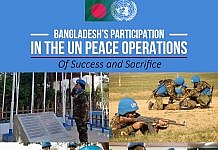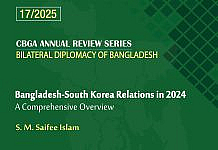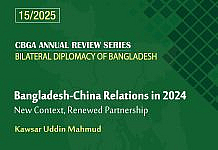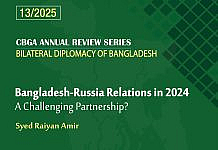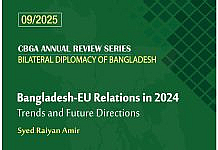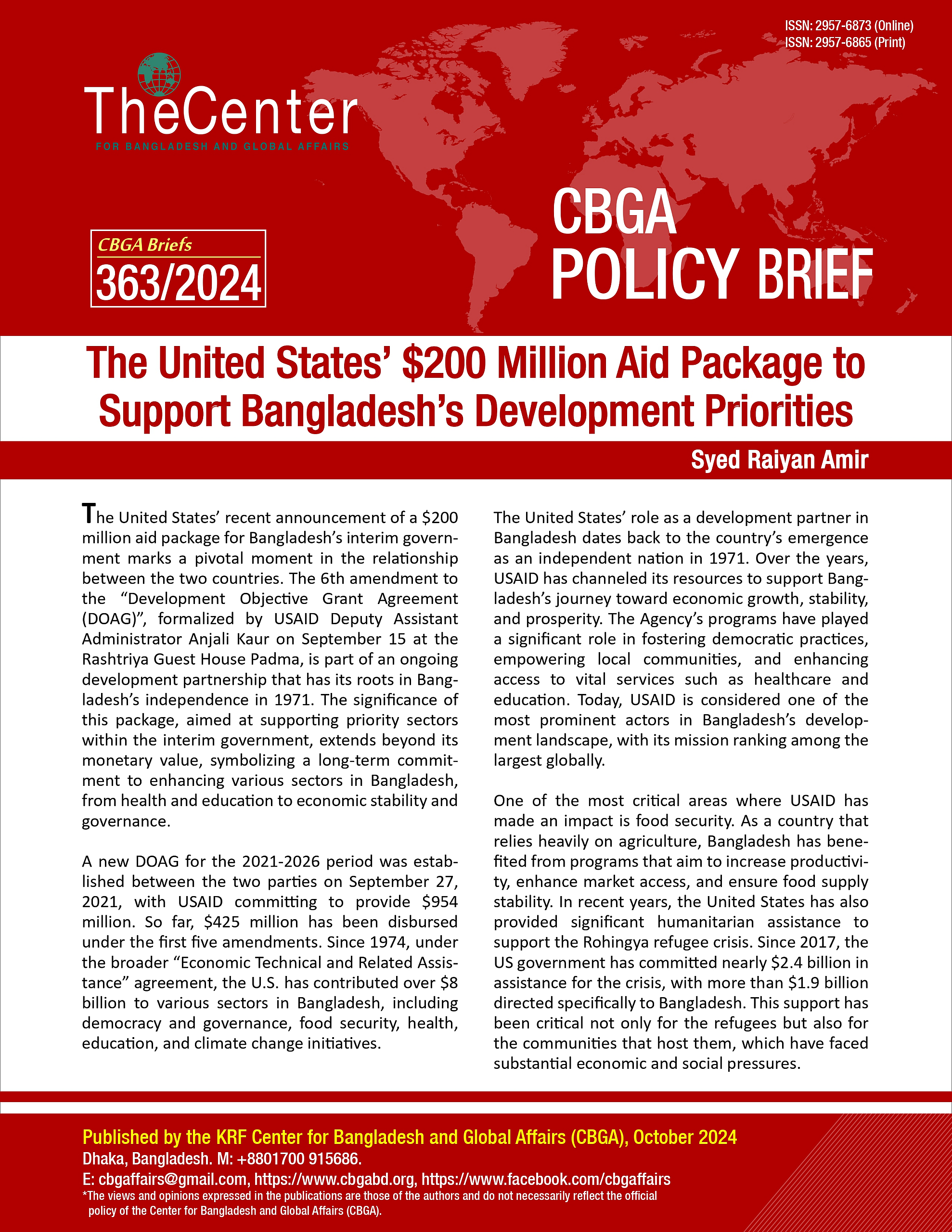
The United States’ recent announcement of a $200 million aid package for Bangladesh’s interim government marks a pivotal moment in the relationship between the two countries. The 6th amendment to the “Development Objective Grant Agreement (DOAG)”, formalized by USAID Deputy Assistant Administrator Anjali Kaur on September 15 at the Rashtriya Guest House Padma, is part of an ongoing development partnership that has its roots in Bangladesh’s independence in 1971. The significance of this package, aimed at supporting priority sectors within the interim government, extends beyond its monetary value, symbolizing a long-term commitment to enhancing various sectors in Bangladesh, from health and education to economic stability and governance.
A new DOAG for the 2021-2026 period was established between the two parties on September 27, 2021, with USAID committing to provide $954 million. So far, $425 million has been disbursed under the first five amendments. Since 1974, under the broader “Economic Technical and Related Assistance” agreement, the U.S. has contributed over $8 billion to various sectors in Bangladesh, including democracy and governance, food security, health, education, and climate change initiatives.
The United States’ role as a development partner in Bangladesh dates back to the country’s emergence as an independent nation in 1971. Over the years, USAID has channeled its resources to support Bangladesh’s journey toward economic growth, stability, and prosperity. The Agency’s programs have played a significant role in fostering democratic practices, empowering local communities, and enhancing access to vital services such as healthcare and education. Today, USAID is considered one of the most prominent actors in Bangladesh’s development landscape, with its mission ranking among the largest globally.
One of the most critical areas where USAID has made an impact is food security. As a country that relies heavily on agriculture, Bangladesh has benefited from programs that aim to increase productivity, enhance market access, and ensure food supply stability. In recent years, the United States has also provided significant humanitarian assistance to support the Rohingya refugee crisis. Since 2017, the US government has committed nearly $2.4 billion in assistance for the crisis, with more than $1.9 billion directed specifically to Bangladesh. This support has been critical not only for the refugees but also for the communities that host them, which have faced substantial economic and social pressures.
The signing of the agreement underscores the vital role the United States plays as a development partner to Bangladesh. The USAID Mission in Bangladesh is one of the largest of its kind globally, with an extensive history of promoting democratic institutions, expanding economic opportunities, improving health and education services, and increasing food security. USAID’s efforts in Bangladesh are aimed not only at development but also at strengthening the country’s capacity to mitigate the impacts of natural disasters—a crucial need for a country that has historically faced numerous environmental challenges.
This aid package will contribute to Bangladesh’s journey toward inclusive growth, ensuring that the country’s most pressing needs are addressed. The $200 million allocation will target key sectors within the interim government’s priority areas, with a particular focus on health, governance, and youth empowerment. These are sectors that have been identified as essential to ensuring Bangladesh’s future prosperity, and the agreement represents a significant step forward in US-Bangladesh relations.
During the signing ceremony, Anjali Kaur expressed her appreciation for being part of the US delegation that worked with Bangladesh’s new interim government. She highlighted the importance of this $200 million aid package, noting that it is designed to foster inclusive prosperity and economic stability. Kaur also emphasized the ongoing collaboration between the two countries, especially in sectors like governance and youth empowerment, which are seen as critical to Bangladesh’s future success.
The US delegation that attended the signing ceremony was led by Brent Neiman, Deputy Under Secretary of the US Department of Revenue, and included US Assistant Secretary of State for South and Central Asia, Donald Lu. The delegation’s arrival at Rashtriya Guest House Padma at 9:30 am marked the beginning of a series of important discussions that extended beyond the signing of the aid agreement. In addition to formalizing the $200 million package, the US and Bangladeshi officials engaged in critical talks on several pressing economic and governance issues, including money laundering, tax reform, and broader economic cooperation.
These discussions reflect the multifaceted nature of US-Bangladesh relations, which go beyond mere development aid. Both countries have a shared interest in addressing financial crimes and improving the economic framework within Bangladesh. By tackling issues like money laundering and tax reform, the United States aims to support Bangladesh in creating a more transparent and efficient financial system, which is essential for attracting foreign investment and fostering sustainable growth.
The involvement of high-level officials such as Brent Neiman and Donald Lu in these discussions demonstrates the US government’s commitment to engaging with Bangladesh on critical policy issues. Their presence also signifies the importance of maintaining strong ties with Bangladesh during this transitional period under the interim government.
A central component of the $200 million aid package is its focus on health, governance, and youth empowerment—sectors that are critical to Bangladesh’s long-term development. The health sector, in particular, has been a major priority for USAID in Bangladesh, especially in light of the COVID-19 pandemic, which exposed weaknesses in global health systems. Through targeted investments, the United States aims to enhance Bangladesh’s healthcare infrastructure, ensuring that the population has better access to medical services and that the country is better equipped to handle future health crises.
Governance is another area where the US sees an opportunity to make a lasting impact. By supporting initiatives that promote transparency, accountability, and democratic practices, the United States aims to strengthen Bangladesh’s institutions and help the country build a more robust and participatory political system. Given the current political climate under the interim government, this support is timely and crucial.
Youth empowerment is also a key focus, as the United States recognizes the potential of Bangladesh’s young population to drive economic growth and innovation. By investing in programs that provide education, skills training, and economic opportunities for young people, USAID hopes to foster a new generation of leaders who can contribute to the country’s development.
During her remarks at the signing ceremony, Anjali Kaur expressed her optimism for the future of US-Bangladesh relations. She highlighted the productive discussions held with Dr. Muhammad Yunus, a key advisor to the interim government, and other officials. Kaur emphasized that the United States is eager to continue its collaboration with Bangladesh, particularly in areas where the two countries share common goals. The discussions between the US delegation and the Bangladeshi government covered a wide range of topics, from economic reform to governance, and there is a strong sense that this partnership will continue to evolve and deepen in the coming years.
Kaur’s comments reflect the United States’ broader commitment to supporting Bangladesh during this transitional period. The $200 million aid package is just one example of how the US is working to ensure that Bangladesh’s government can effectively meet the needs of its people while navigating the challenges that come with leadership transitions.
The announcement of the $200 million aid package is a clear demonstration of the United States’ ongoing commitment to Bangladesh’s development. This partnership, which began more than 50 years ago, continues to evolve, with both countries working together to address critical challenges in health, governance, and youth empowerment. The recent discussions on money laundering and tax reform also highlight the broad scope of US-Bangladesh relations, which extend beyond development aid to include economic cooperation and governance reform.
– Syed Raiyan Amir is a Senior Research Associate at the KRF Center for Bangladesh and Global Affairs (CBGA).


